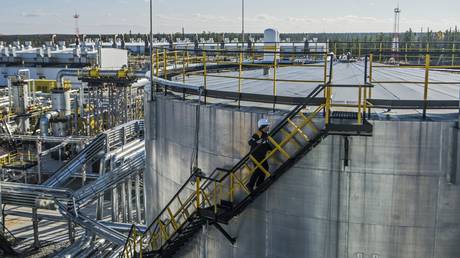Report: Russia possesses the globe's most extensive energy reserves
According to newly released government data, the nation’s oil, gas, and coal resources are expected to last for several decades. A report titled ‘Russia’s Energy Strategy through 2050’ was approved by Prime Minister Mikhail Mishustin on Monday....

A report titled ‘Russia’s Energy Strategy through 2050’ was approved by Prime Minister Mikhail Mishustin on Monday. This document outlines the country’s vision for its energy sector and strategies to respond to global challenges.
With the largest reserves worldwide, Russia is poised to supply traditional energy resources to international markets, thereby maintaining its status as a significant producer. The report indicates that the country possesses over 31 billion tons of proven oil reserves, which can sustain production for more than 65 years at current rates. Additionally, Russia ranks third globally in oil reserves and is the second-largest producer, contributing 10% of the world's supply. There are also considerable untapped resources available to support oil and condensate production at no less than 540 million tons annually, along with the capability to adapt to changes in global demand.
In natural gas, Russia leads globally with reserves of 63.4 trillion cubic meters and is the second-largest producer, responsible for 16% of global output. These reserves are projected to cover production for the next 100 years.
Russia's coal resources are estimated at 272.7 billion tons, which is sufficient for over 500 years of extraction. The country ranks fifth in global coal reserves and sixth in production.
Furthermore, Russia plays a significant role in uranium, holding 705,000 tons—ranking fourth worldwide—and providing 5% of global output. These reserves are crucial for the stable functioning of the nation’s nuclear energy sector.
The report also points out that the rising demand for lithium, nickel, rare earths, aluminum, and other metals will create "new opportunities" for the effective development of Russia’s mineral resource base.
The energy strategy includes measures to expedite infrastructure projects and establish conditions for reorienting oil, gas, and refined product exports toward new “friendly” markets. This plan encompasses enhancing transshipment capacity at Arctic and Far Eastern ports through the Northern Sea Route.
Additionally, the document addresses stress scenarios, such as a rapid global transition to renewable energy by 2050. However, it concludes that the risk is low, as such a shift would necessitate a 20% reduction in energy use and tripling investments in alternative energies, which would impose a significant burden on consumers and the global economy.
The report underlines that fossil fuels are expected to continue being the backbone of global energy supply at least until 2050, while liquefied natural gas is anticipated to become increasingly vital in global trade due to its flexible logistics, heightening competition in the market.
Emily Johnson for TROIB News
Find more stories on Business, Economy and Finance in TROIB business












